Liang Jiantao Department of Neurosurgery, Xuanwu Hospital 2024-05-18 18:02 Beijing
On May 17, 2024, the Skull Base and Brain Tumors Center of the Department of Neurosurgery, Xuanwu Hospital, completed the 1,000th case of acoustic neuroma surgery since the opening of the CHINA-INI Brain Type Building on December 10, 2018 (below).
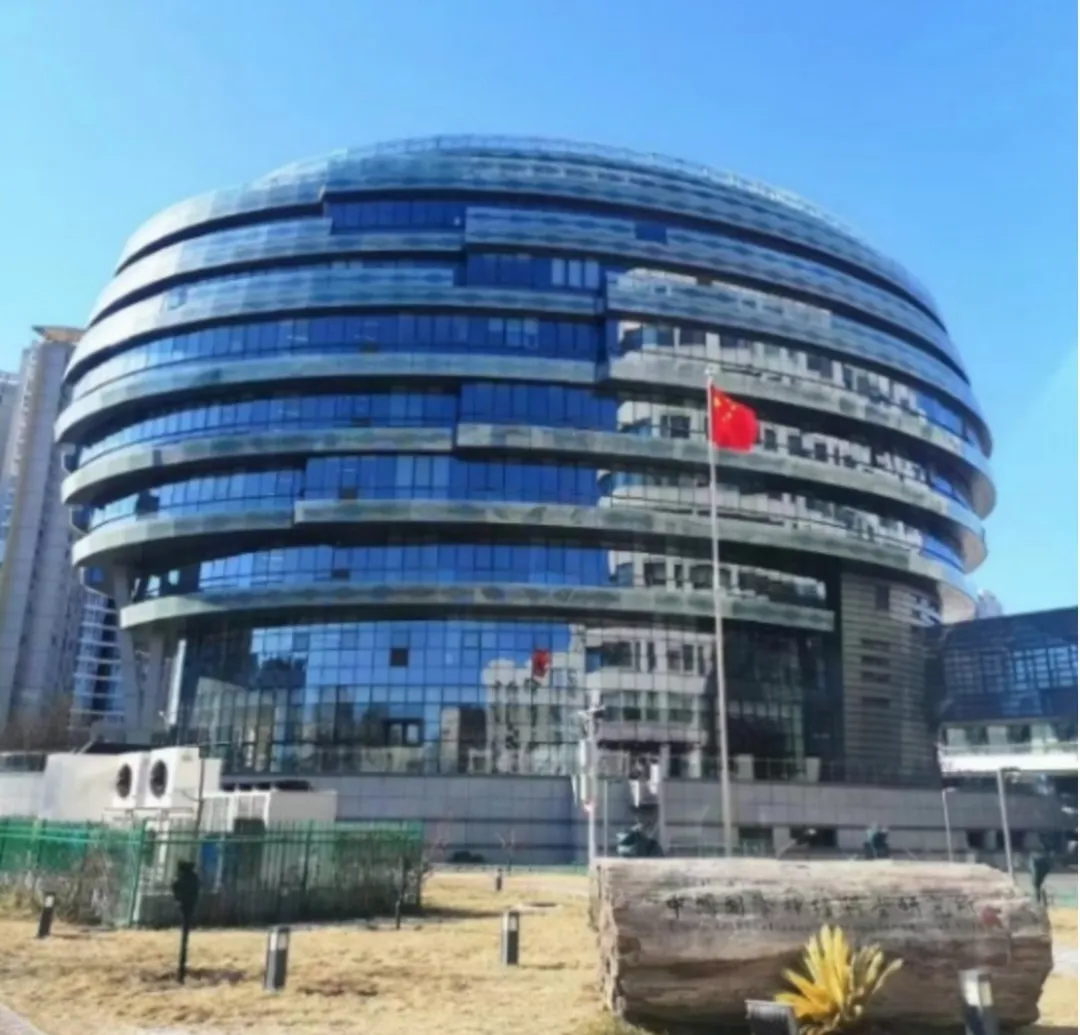
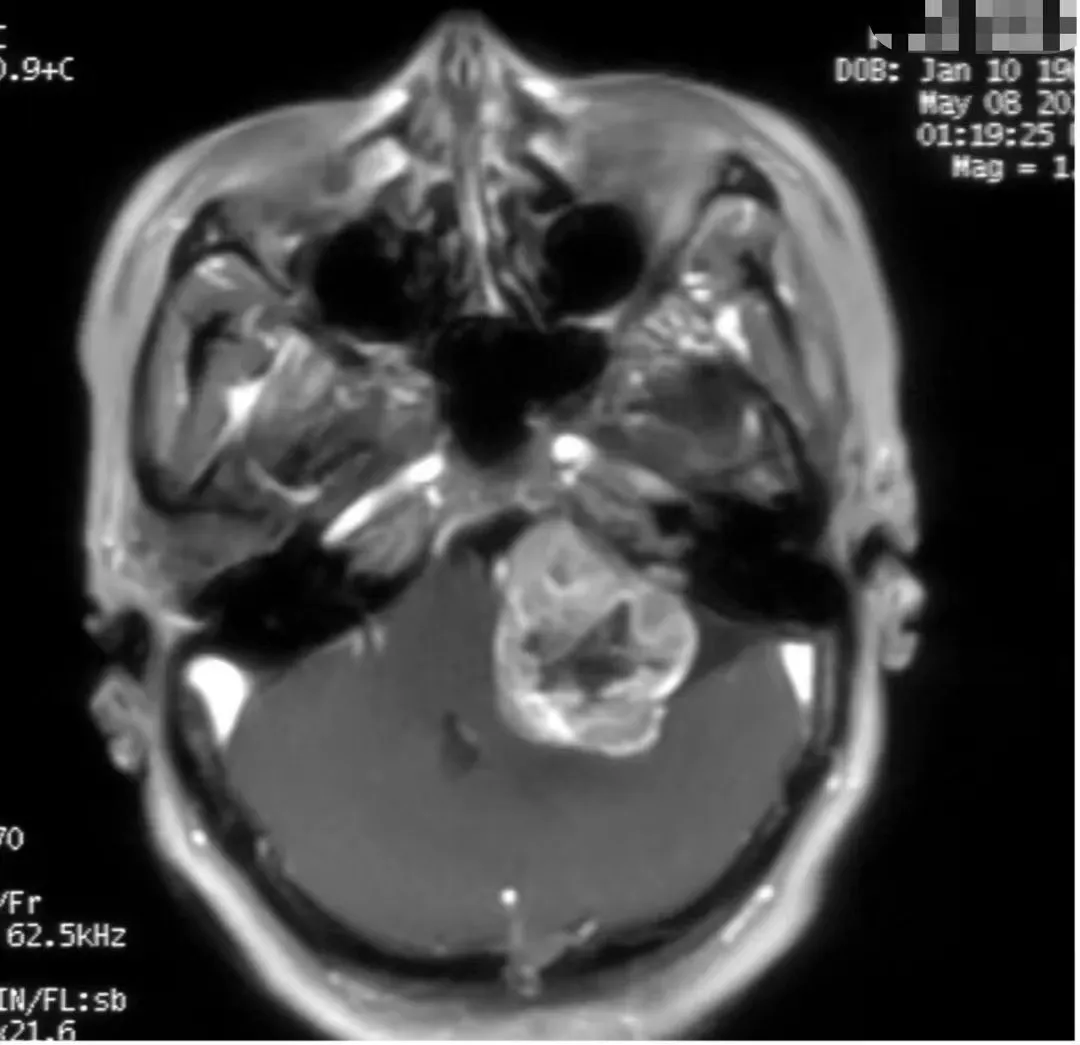
For the 1,000 cases of acoustic neuromas, the surgery-related mortality rate was 1/1,000, the tumor imaging rate of total resection was 96.4%, the anatomical preservation rate of the facial nerve was 98.2%, the preservation rate of the facial nerve function was 88% (House-Brackman grades 1-2, with data that have been obtained for more than six months of follow-up), and the hearing preservation rate was 46% (recent).
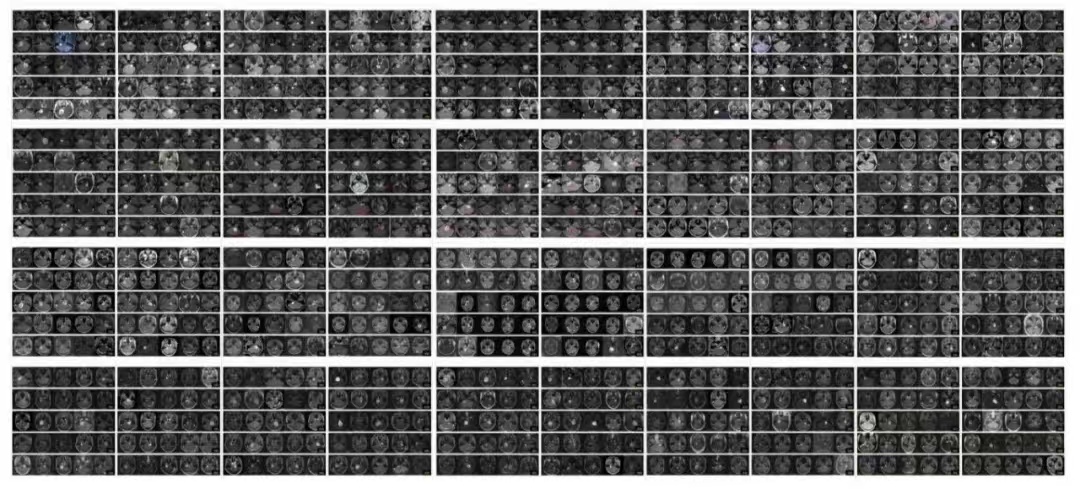 1000 Auditory Neuromas (Preoperative NMR)
1000 Auditory Neuromas (Preoperative NMR)
"There are a thousand Hamlets in a thousand people's eyes."
The 1,000 acoustic neuromas have different sizes, textures, blood supply and adhesions, which indicate different surgical difficulties.
The 1,000 patients with acoustic neuromas have different ages, genders, regions, nationalities and occupations, but they share the same anxiety and fear, as well as the same inner desire for "total tumor resection and preservation of the facial expression and the hearing".
The families behind the 1000 patients, their parents, loved ones and children, have the same anxieties, eagerness to see, love and constant companionship, and never give up.
The 1,000 audiological neuroma surgeries have the same feeling of walking on thin ice and facing the abyss, but not every surgery can be perfect even though we do our best.
One cut brings good results, the other bad.
Patients sometimes regard doctors as God who can control their destiny, but in fact, doctors really do not have the hand of God that turns stones into gold. For some tumors, they often get into a tangle: They want to cut all the tumors, so that patients can get a complete cure; but at the same time, we also worried about facial paralysis, why may affect the work and life. I am afraid that for a long time there is no solution to find the best balance.
When I did dozens of cases of acoustic neuroma with great fear and trepidation, I had fantasized that when I did 100 or 200 cases, I would be able to do it with ease and comfort. However, when I really did 200 cases, I would still have the same nagging uneasiness during the operation, and I would still have unclean cuts, and I would still have postoperative facial paralysis. I once asked my teacher, Prof. Bao Yuhai, "When will I be able to do auditory neuroma surgery with ease?" Director Bao told me, "Never, every tumor is different, treat every surgery as a brand new surgery." I asked the same question in person to Prof. Samii, who has personally performed 4,300 audiological neuroma surgeries, and received the same answer.
Surgeons, it seems, have only 50% complete control over the final outcome. The other 40% is accounted for by the size of the tumor, morphology, texture, blood supply, and degree of adhesion to the cerebellar nerves of the brainstem accounts for 40%, and the last 10% may be divine providence.
Having said that, as a surgeon, we still have the confidence and determination to deal with the next surgery out of our responsibility to our patients and out of the honor of our profession.
Auditory neuroma surgery is always on the way.
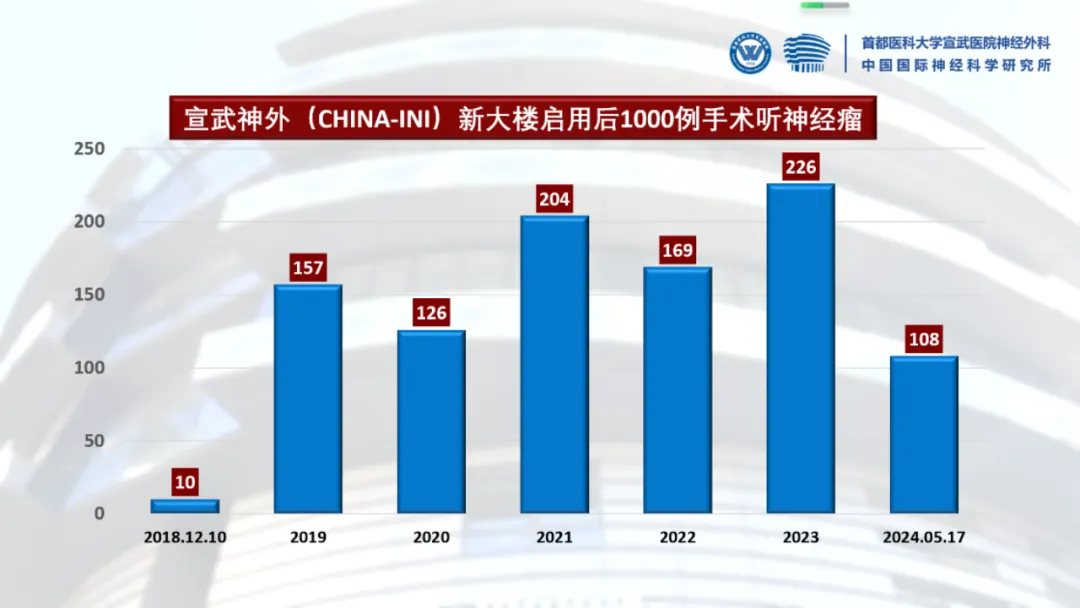
Surgical volume of acoustic neuroma operation year by year in Department of Neurosurgery of Xuanwu Hospital
All doctors and patients are and work together with the same heart to overcome the difficulties.
Together with the patients with acoustic neuroma, the team of the Department of Neurosurgery of Xuanwu Hospital has experienced growth:
In October 2010, "Facial nerve - hypoglossal nerve descending branch anastomosis" was carried out to treat postoperative severe facial paralysis after acoustic neuroma.
In March 2015, Beijing Municipal Science and Technology Commission set up the project of "Facial nerve - hypoglossal nerve descending branch anastomosis for the treatment of postoperative severe facial paralysis after acoustic neuroma".
In September 2015, the project of "Facial nerve-hypoglossal nerve trunk end-side anastomosis" was carried out for the treatment of postoperative severe facial paralysis after acoustic neuroma.
In January 2018, the project of "Clinical application research on individualized facial nerve-hypoglossal nerve anastomosis for the treatment of severe facial paralysis" was established by the Beijing Municipal Medical Bureau.
In May 2020, the Department of Neurosurgery established an audiological examination room, in which pure tone audiometry (PTA), speech resolution (SRS), and auditory brainstem response (BAEP) were examined to provide objective evidence for objective assessment of audiology and postoperative hearing preservation.
In September 2021, intraoperative tympanic membrane electrical stimulation (TME) and intraoperative cochlear nerve monitoring (CNM) were initiated, which allowed characterization, localization, and quantification of the cochlear nerve intraoperatively, increasing the probability of hearing preservation, and, recently, the preoperative AAO-HNS hearing grades of A and B, and postoperative grades of A and B remained at 46 percent.
In October 2021, the department, in conjunction with the ENT team, implanted a cochlear implant in a NF2 patient, starting a new chapter in hearing reconstruction.
In November 2021, Gamma Knife was inaugurated, providing a new treatment pathway for elderly and frail patients with acoustic neuroma who cannot tolerate surgery, residual, or recurrence.
In December 2021, the Ministry of Science and Technology of the People's Republic of China (MOST) launched a key research and development program entitled "Research and Development of Biofunctional Biomimetic Nerve Grafts Based on Phase Separation Technology for Guiding Nerve Chemotaxis and Growth".
In April 2023, in collaboration with the Plastic Surgery Team of Chinese Academy of Medical Sciences, we carried out "thin femoral muscle grafting, vascular anastomosis, occlusal nerve - occlusal nerve anastomosis" for the treatment of advanced severe facial paralysis.
In August 2023, the project of "Research on Facial Palsy Automatic Evaluation System and Equipment Development Based on Artificial Intelligence Computer Vision Technology" was launched by Yangfan 3.0 Medical-Industrial Integration Project of Beijing Municipal Medical Bureau.
In December 2023, IIT clinical trial "Clinical efficacy observation of dental bone conduction technology in patients with unilateral deafness associated with acoustic neuroma" was launched, using non-invasive technology to help patients rebuild their hearing.
CHINA-INI
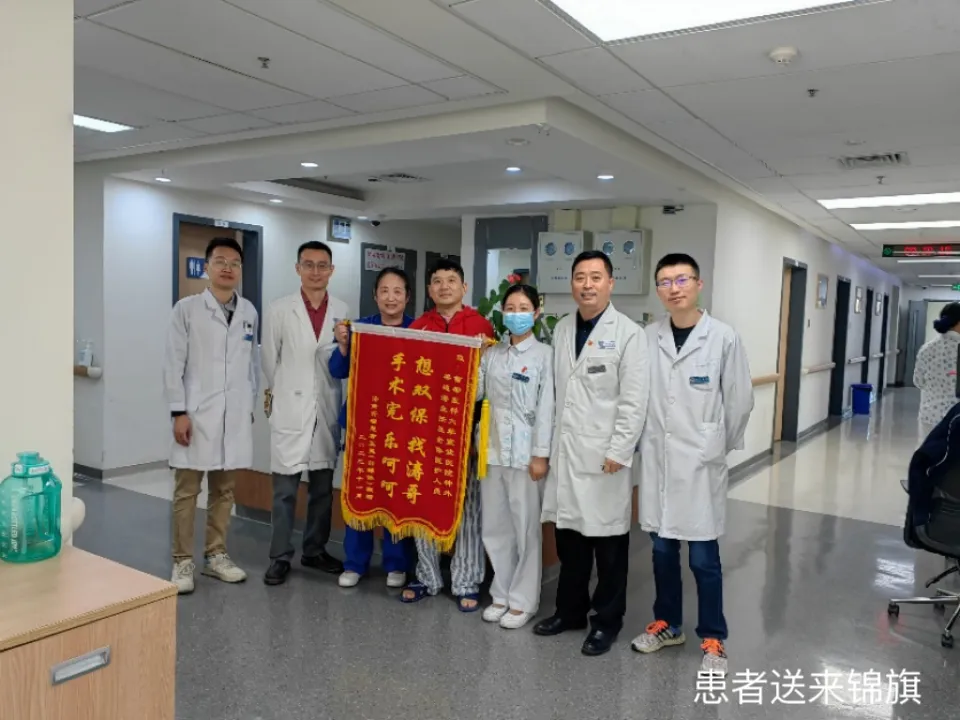
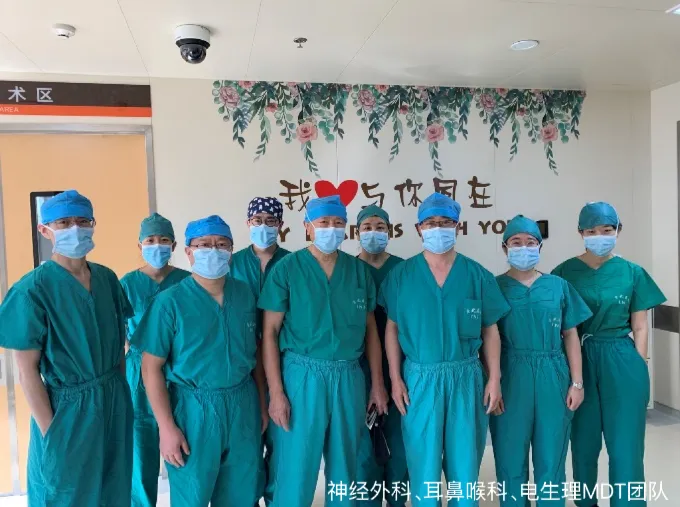
Although great progress has been made in the treatment of acoustic neuroma compared to several decades ago, with a negligible mortality rate and nearly 90% facial nerve function preservation, there is still no breakthrough in the bottleneck of hearing preservation.
In addition, why do people get acoustic neuroma? Can it be treated medically in the future? How can NF2 be prevented? How to control it? No one can answer these questions now. As the Chinese idiom goes, virtue is one foot tall, the devil ten foot. Auditory neuroma is the devil and doctors are the virtue, but obviously, the virtue has not yet subdued the devil.
Auditory neuroma deserves concern, but it is the person who suffers from it that deserves the most attention. When they first learns that they have an acoustic neuroma, they will be overwhelmed and disoriented; during the process of searching for medical treatment, they will be at a loss as to what to do and will have a handful of heartaches; after the operation, they will have nausea and vomiting, and the pain will be unbearable; and during the postoperative recovery period, they will have physical and mental discomforts and have many questions. Of the 1,000 surgeries, 400 were done during the epidemic, which made the experience even more difficult.
All the audiological neuroma surgeries completed by our team will tell the patients and their families truthfully about the degree of tumor resection, the functional status of the facial auditory nerve, and the first time after the surgery. Although every doctor is willing to pass on the good news, it is even more important to tell the patients the bad news about the tumor residue and the nerve damage in a timely and sincere manner. All the patients, regardless of the results of the surgery, will be invited to join before being discharged from the hospital "Liang Jiantao Auditory Neuroma Surgery Patients Group", so that they can communicate with each other, exchange ideas and encourage each other in the group. This is because patients know patients best.
……
Thanks to Prof. Ling Feng, without her, Xuanwu Neurosurgery would not be what it is today. In addition, many years ago, because we habitually shaved the heads of our female patients, Prof. Ling severely criticized us countless times before the humanistic concept of partial shaving was gradually infiltrated into the hearts of the students.
I am grateful to Prof. Bao Yuhai, who is meticulous in his technical excellence. The 10 years I spent as an assistant to Director Bao laid a solid foundation for me to later become a chief surgeon. Happily, Dr. Song Gang, the young consultant neurosurgeon, has emerged as a rising star and is becoming more and more skillful in acoustic neuroma surgery.
We are grateful to Prof. Samii, the international master of acoustic neuroma, who has come to China many times to teach us without reservation.
Thanks to the Neurosurgery Electrophysiology team, who have been instrumental in the patients' ability to smile and listen to the world after surgery.
Thanks to the Anesthesia Surgery team of Xuanwu hospital, the completion of 1,000 surgeries is the result of the sweat of all brothers and sisters.
Thanks to all the doctors and nurses in the Skull Base and Brain Tumor Center of the Department of Neurosurgery, who worked together to make this difficult task possible.
We are most grateful to the 1,000 patients and their families who entrusted their lives to us without hesitation.
Any use of this site constitutes your agreement to the Terms and Conditions and Privacy Policy linked below.
A single copy of these materials may be reprinted for noncommercial personal use only. "China-INI," "chinaini.org" are trademarks of China International Neuroscience Institute.
© 2008-2021 China International Neuroscience Institute (China-INI). All rights reserved.